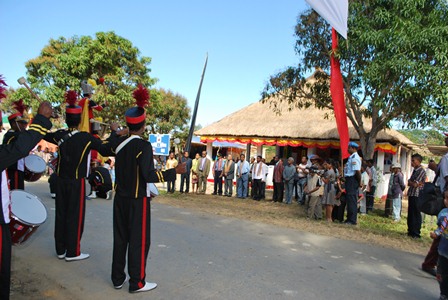Timor-Leste: CEPAD is prioritizing greater accountability and public participation

This year, Timor-Leste has seen three rounds of presidential and parliamentary elections. In one of the world’s youngest countries, these elections provided the litmus test for its democratic foundations. Only ten years after the restoration of independence in Timor-Leste, the elections were seen by many as a successful turning point for stability and democratic consolidation in the Southeast-Asian country.
National leaders, electoral bodies, political parties and other key stakeholders, including the international community, played leading roles in what were this year’s major elections.
Moving beyond elections
It remains important that the people’s voice is not only heard during election season. The Timorese demonstrated their commitment to democratic consolidation through their sustained participation in three consecutive elections in 2012. Obstacles however remain: widespread poverty and high expectations persist and could potentially deepen the existing mistrust between citizens and the state.
In the words of João Boavida, Executive Director of local Interpeace partner, the Centre of Studies for Peace and Development (CEPAD), “The very idea of a democratic state is that it functions as an entity in which the power of the political elite is limited by the active participation of the majority of its citizens.”
To continue to move ahead on the path to democracy, Timorese need to further encourage the process of democratic consolidation. It is key for all people participating in an active political, economic and social dialogue even beyond the election period.
Supporting broad-based dialogue and participation
To encourage greater participation and dialogue at the district level, CEPAD in partnership with Interpeace and with the support of The Charitable Foundation, built three peace houses in the districts of Maliana, Baucau and Aileu. The peace houses provide spaces for open dialogue and conflict resolution at the local level.
Based on the local tradition of “nahe biti bot” – or “rolling out the mat” – a fourth peace house is also currently under construction in Ermera district.
Peace houses serve as dialogue platforms to encourage greater citizen participation in political decision-making processes. Citizens from all levels and sectors of society meet frequently to resolve differences and find peaceful solutions to conflict in the peace houses.
Engaging women in democratic dialogue
CEPAD also works to increase women’s participation through a series of countrywide workshops which are designed for women to reflect upon their role in the democratization process. Held throughout each of Timor-Leste’s thirteen districts, key focus areas of the workshops included democratic rights and responsibilities and the role of local culture in encouraging women’s greater participation in decision-making processes.
Reducing inequality, combating KKN
Increasing inequality in Timor-Leste also represents a significant challenge to the democratization process.
Implementing recommendations from consultations with hundreds of stakeholders countrywide, CEPAD also works to combat corruption, collusion and nepotism, or KKN as it is locally known in Timor-Leste, through inclusive dialogue and nationwide efforts to raise citizen awareness on this issue.
This approach is a part of CEPAD’s overall work towards promoting a more democratic and inclusive society, in which citizens are fully aware of their democratic rights and responsibilities.
